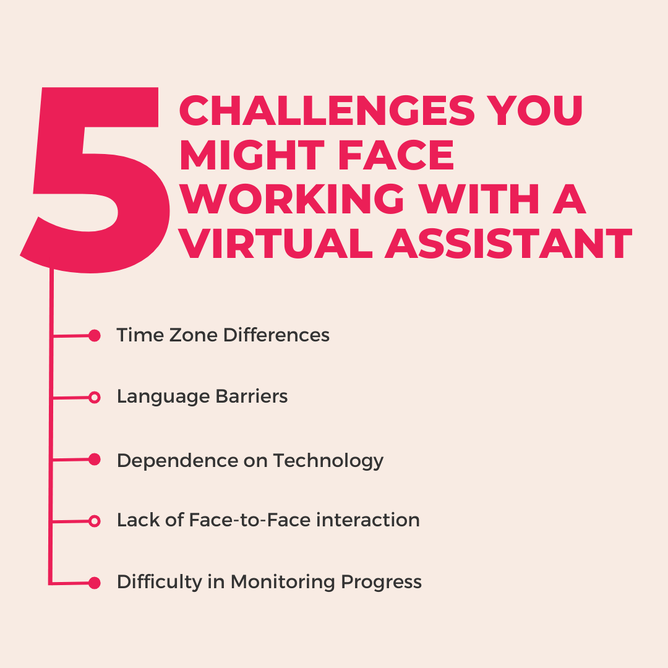A Virtual Assistant (VA) can be one of the most impactful hires you make in your business - but it's not always smooth sailing from day one. Like any new working relationship, it takes intention, systems, and communication to make it work.
Here’s a breakdown of the most common challenges business owners face when working with a VA in 2025, and how to overcome them with confidence.
Time Zone Mismatches
If your VA is overseas, time zones can make real-time communication tricky.
How to make it work:
Schedule meetings during overlapping hours.
Use a shared calendar to avoid surprises.
Set clear expectations for response times and availability.
Or: work with a New Zealand-based VA to keep things simple.
Language & Clarity Gaps
If your VA isn’t a native English speaker - or if you use a lot of internal lingo - misunderstandings can creep in.
How to make it work:
Choose a VA fluent in your preferred language.
Use clear, plain language and avoid assumptions.
Record tasks using Loom, Berrycast, or similar tools for extra clarity.
Provide written instructions alongside verbal ones.
Tech Glitches & Connectivity
Working remotely means relying on tech. If systems go down or the internet cuts out, it can impact deadlines.
How to make it work:
Use reliable platforms like Google Workspace, Zoom, Slack, and LastPass.
Check your VA’s setup (especially if they’re overseas).
Have a backup communication plan (e.g. WhatsApp if Slack fails).
Work with a VA agency that offers continuity and team backup.
No Face-to-Face Interaction
You don’t get the casual office banter or visual cues when working remotely, which can make building trust feel slower.
How to make it work:
Use video calls regularly - it builds rapport faster than email.
Create space for casual chats (like a #watercooler Slack channel).
Share wins, updates, and feedback openly.
Connection doesn’t have to be in person, it just needs to be intentional.
Visibility Over Progress
It’s easy to wonder, “What’s actually being done?” when you’re not sitting next to someone.
How to make it work:
Use task tracking tools like Teamwork, Asana, or Trello.
Agree on weekly updates and outcomes, not just hours worked.
Ask your VA to send a quick end-of-week summary of what’s been completed.
This gives you peace of mind and helps them stay accountable.
Working with a VA isn’t risk-free, but neither is doing everything yourself.
With the right setup, the benefits far outweigh the bumps in the road.
You don’t have to be available 24/7, you just need clear systems.
You don’t have to be everywhere at once, you just need the right support.
You don’t have to do it all, you just have to delegate well.
Feeling the pressure of doing it all? Let’s find the support that frees you up to grow. Book a discovery call and see how a VA could make that happen.



